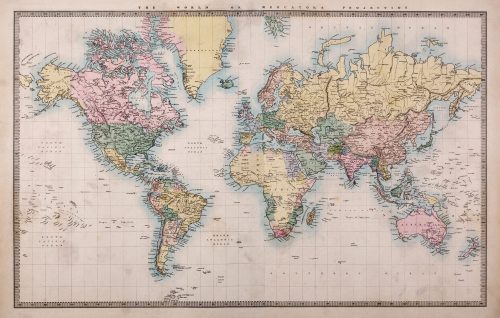In the early days of the novel coronavirus spreading throughout the world, some people wondered if they should travel during the COVID-19 outbreak? At that time, the answer wasn’t straightforward. Now that the World Health Organization has declared a global pandemic and countries are restricting non-essential travel, the answer is clear. Don’t travel during the COVID-19 outbreak unless it’s essential.
What is COVID-19?
What began a few months ago as a novel (new) respiratory illness in Wuhan, China, is now known as the COVID-19 pandemic, and it’s spread around the world. You can read more about COVID-19, the expected fatality rate, and the anticipated chances of falling ill with the novel coronavirus in this statistics-rich article in the Economist.
Travel Considerations During COVID-19 Outbreak
I’ve compiled some travel considerations during the COVID-19 outbreak. This isn’t an exhaustive list.
- Visit your national government’s website for travel advisories as well as the World Health Organization and Centers for Disease Control and Prevention for the latest information. Currently, the Government of Canada is asking citizens to avoid non-essential international travel.
- Ensure all your vaccines are up to date, including the seasonal flu shot. These measures will help prevent other illnesses during the COVID-19 outbreak.
- It’s always prudent to travel with insurance. Now you should ensure that your travel insurance provides adequate coverage for COVID-19 including trip cancellation, disrupted flights, evacuation, and medical coverage. Contact your insurance provider before you travel to ensure you are covered. Learn more about insurance and COVID-19 here.
- If you travel by air or rail, choose the most spacious cabin. Experts recommend social distancing to prevent the spread of viruses. In an airplane, fly in first or business class if you can. On a train, if possible, choose a category of travel that allows you to select a spacious seat. This way, you should be able to avoid traveling in a cramped train car. Here are some general tips on family train travel and air travel.
- Health experts recommend that you wash your hands frequently (and for a minimum of 20 seconds – here’s how to do it properly), cough into your elbow, avoid close contact with people, especially those that appear ill, and don’t touch your face. Stay home if you feel sick.
- If you have to travel, carry hand sanitizer (alcohol-based hand with 60%-95% alcohol) and disinfecting wipes in your purse, backpack, or briefcase. The Centre for Disease Control and Prevention recommends cleaning frequently touched surfaces with a regular household cleaning spray or wipe. Air travellers are limited to travel-sized containers that are 3.4 ounces (100 milliliters) or less per item — all liquids and gels must fit into a quart-sized bag. Read more about the Transportation Security Administration liquids rule here.
- Be prepared for the possibility of being quarantined or getting sick if an outbreak develops in the destination you are visiting. This may mean spending an additional two weeks or longer away from home. Part of this preparation includes ensuring your travel medical kit is up to date and includes a supply of cough and fever-reducer meds, electrolyte tablets, and at least an additional two-weeks of prescription drugs. Here is a list of suggested travel health kit contents from the Government of Canada.
- You may be required to self-isolate for 14-days after you return from international travel. Ensure you are prepared for this requirement before you travel.
Are We Travelling During the COVID-19 Outbreak?
The Government of Canada recommends that citizens avoid all non-essential international travel, so we are sticking close to home. I’ve canceled some international travel, but I’m hopeful we can return to Europe in August.
How about you? Has the COVID-19 outbreak altered your travel plans?
Photo credit Shutterstock – Royalty-free stock photo ID: 151420769 by Nico El Nino.






It’s such a changing situation. We’ve also had to cancel our spring back plans. Better to be safe than sorry. It’s good to remember that just because we appear asymptomatic doesn’t mean we can’t do harm to others.
Being homebound is making me insane! But I know it is the right thing for my family. UGH!